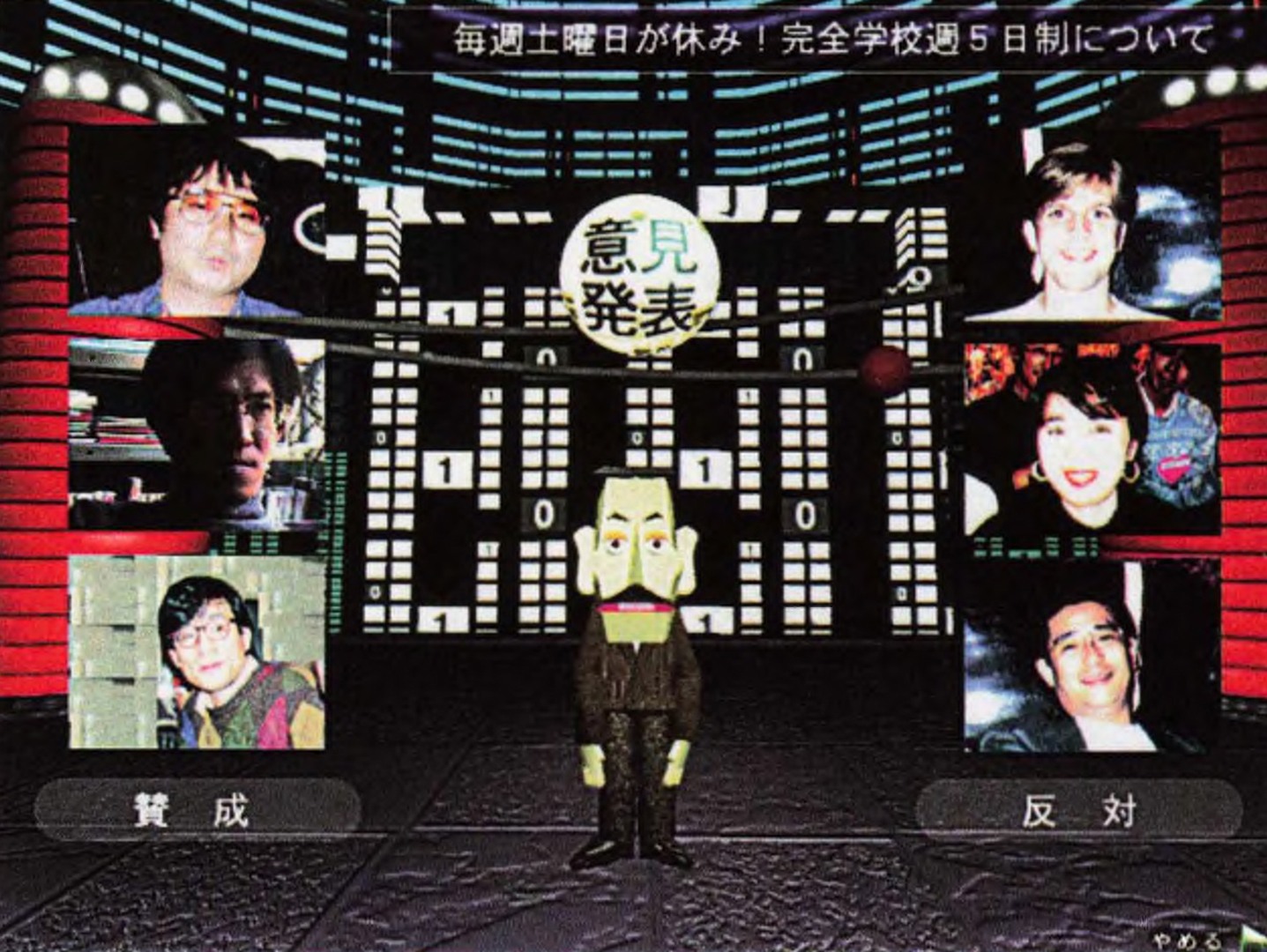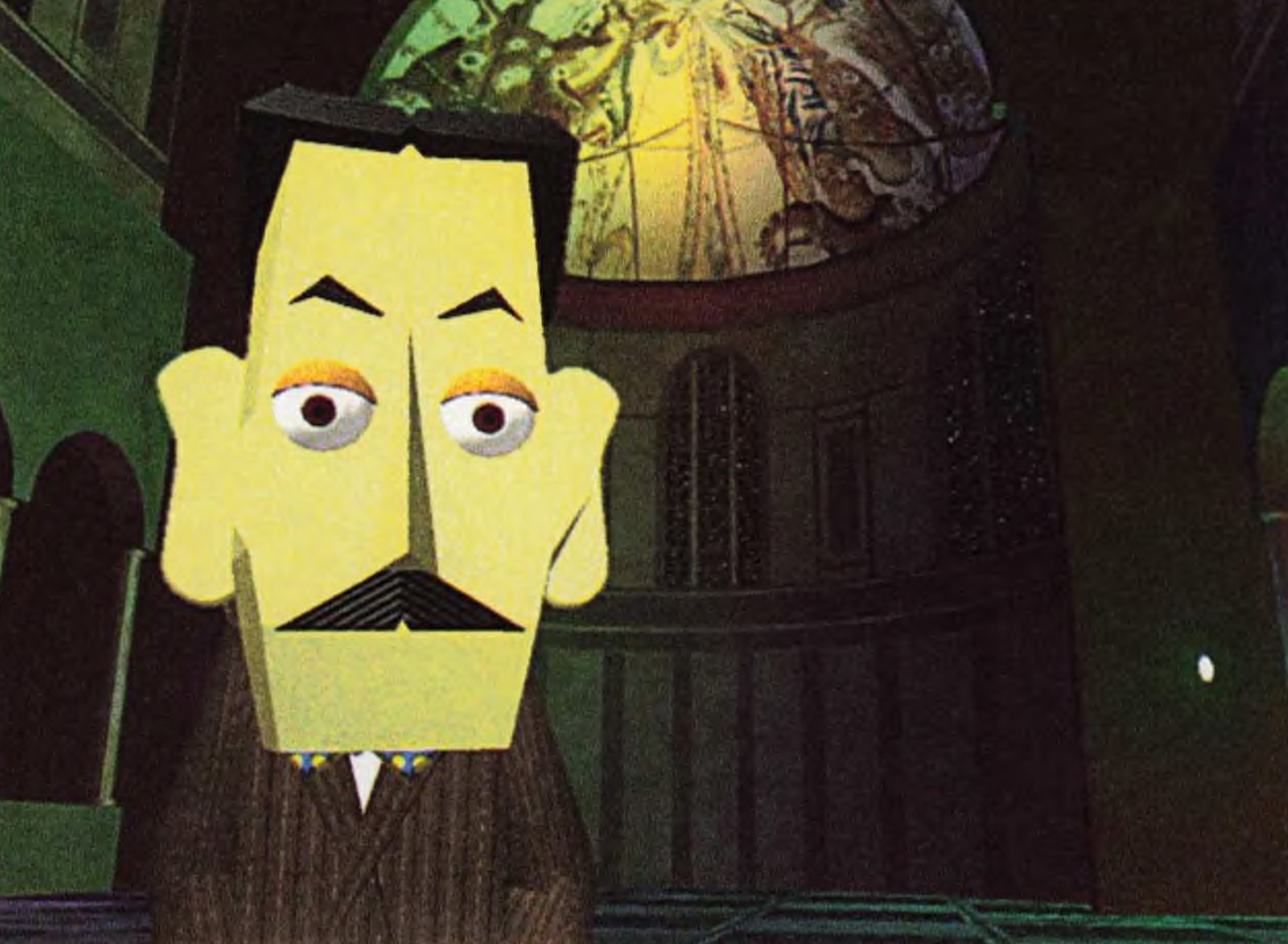“Virtual Discussion” by Kamata and Masuda
Conference:
- SIGGRAPH 1995
-
More from SIGGRAPH 1995:


Type(s):
Title:
- Virtual Discussion
Program Title:
- Interactive Communities
Presenter(s):
Collaborator(s):
Description:
Talking is the interactivity that originally made us different from other animals. This verbal communication could be regarded as the first instance of our “being in the world” of cyberspace – a fictitious interactive environment.
Over the centuries, human beings have learned to speak up and express their deeper thoughts. Prophets, politicians, priests, poets, and philosophers – all are “neuro- mancers,” hacking in the interpersonal cyberspace of spoken words. This implies a redefinition of “democracy” as the state of mind where each and every constituent could freely “hack” into interpersonal cyberspace and deeply interact with every other member of society.
With current digital technologies, could we give any meaning to this definition of “democracy”? That’s the question that inspired Virtual Discussion, which was produced for the Sakuzo Yoshino Memorial Museum. The museum commemorates Japan’s historical thinker of that name, who is well known for his democratic ideas. The goal was to develop an interactive program for free-speaking states of mind.
In Virtual Discussion, participants choose one of two issues. A computer-generated virtual host introduces you to those issues and guides you into a conference room. There, just by clicking on the screen, you may watch and hear any other participants expressing their opinions in the form of digital video. Then, after you decide on your own position, pro or con, it’s your turn to speak up, and your comments are automatically recorded and converted into the database of digital video. Your opinion is registered as a crucial part of the deliberative process. Subsequent participants just click on the picture of your face to hear your speech and personal data. With its ability to digitize many comments and instantly collect them in a database, Virtual Discussion could facilitate creation of automated, computerized survey systems. The system’s capacity for storing video information in a database could be used to develop an interactive system that dynamically combines and manipulates such visual images, even for a dating device that helps boys meet girls in such virtual environments, for example.
Perhaps, some day in the 21st century, Virtual Discussion will be a real tool of democracy, as it was originally conceived.





